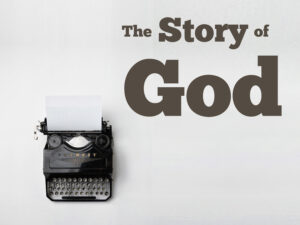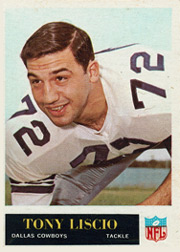 According to the Bible, knowledge means knowing who God is and what he is doing through Jesus Christ. That knowledge, according to the Bible, leads to relationship, transformation, and mission. But most of the time, we’re primarily reading the Bible for information. We study words and the original languages behind them, we consult sources and resources for understanding the historical context, we dive deep into a fragment of a sentence and don’t come up for air until we’ve discerned the color of ink Luke used when he wrote Acts. And we don’t consider relationship, transformation, or mission.
According to the Bible, knowledge means knowing who God is and what he is doing through Jesus Christ. That knowledge, according to the Bible, leads to relationship, transformation, and mission. But most of the time, we’re primarily reading the Bible for information. We study words and the original languages behind them, we consult sources and resources for understanding the historical context, we dive deep into a fragment of a sentence and don’t come up for air until we’ve discerned the color of ink Luke used when he wrote Acts. And we don’t consider relationship, transformation, or mission.
Understanding the Bible as the Story of God will help us better connect the dots in Scripture, as observed in our last post. And it’ll help us more easily identify with and see ourselves in the narrative.
Seeing the Scriptures as one grand, sweeping, epic story makes it easier to see ourselves in the narrative. We’re better able to place ourselves in the plot and play our parts and say our lines. We get this from inside the Bible itself, from the rich heritage of God’s people who lived and wrote and faithfully passed on the holy Scriptures.
Twelve generations after the crossing of the Red Sea, God’s people are saying, “Lord, you brought us out of Egypt!” Well, no, your grandparents and great-grandparents weren’t even alive when that happened. You never crossed the Red Sea. Oh, yes, we did; we did cross the Red Sea. We’re in this story.
In Daniel 9, the prophet is confessing sins that his ancestors committed decades before he was born. “We have sinned and done wrong; we have been wicked and rebelled!” No, Daniel, that wasn’t you. You don’t need to confess sins for which you are not personally responsible. Wrong answer. It is me. I did commit these sins. I’m in this story.
This is what the Bible does. It invites you to see yourself. It puts you in the Story.
“We thank God for you, brothers and sisters loved by the Lord, because God chose you as firstfruits to be saved through the sanctifying work of the Spirit and through belief in the truth. He called you to this through the Gospel, that you might share in the glory of our Lord Jesus Christ.” ~2 Thessalonians 2:13-14
The way you see other people and the way you understand the world and respond to what’s happening around you depends on the story you’re living.
You can go to a high school football game and sit by five people on the same bleacher and hear five different views of the same game depending on the role they play in the story they’re living. A scout looking at next week’s opponent says, “We’ve got to play zone against these guys; they’re fast.” A member of the board that owns the stadium thinks, “Four thousand people here, ten dollars per ticket, nachos are six bucks and Cokes are three dollars – we’ve got to figure out how to host a couple of playoff games when the season’s over.” The running back’s mom groans, “Don’t give him the ball; I don’t want him to get hurt.” The running back’s dad says, “Give him the ball! He needs more carries or he’s going to wind up at Texas A&M Commerce!” The running back’s English teacher marvels, “How can that kid memorize an 85-page playbook, yet forget to turn in his essay?”
Knowing the Story and understanding who you are in the Story informs and shapes how you see the game, how you respond to what’s happening on the field, and how you might act or speak to move the plot along and accomplish the purpose of the drama. Your identity is forged by the Story you live and the part you see yourself playing. God’s great Story is our Story.
Jesus says, “You didn’t choose me; I chose you.” The Bible says, “You are no longer foreigners and aliens, but fellow citizens of God’s people and members of God’s household.”
“You are a chosen people, a royal priesthood, a holy nation, God’s special possession, that you may declare the praises of him who called you out of darkness and into his wonderful light. Once you were not a people; but now you are the people of God!” ~1 Peter 2:9-10
Understanding the Story of God helps us bring more purpose and order to our lives and experiences. What is God doing in the world? Where is all this headed? And where are we – where am I – in this Story? Well, you are the light of the world. You bear the holy image of the Lord. You are ambassadors for Christ.
A system of laws and commands compels us to obey and comply. A Story invites us into relationship and mission. Reading the Bible primarily as lists and rules doesn’t foster the intent of God’s revelation in Scripture: to draw us into loving community and partnership with him. Viewing the Bible as God’s Story invites us to join.
Peace,
Allan








Recent Comments